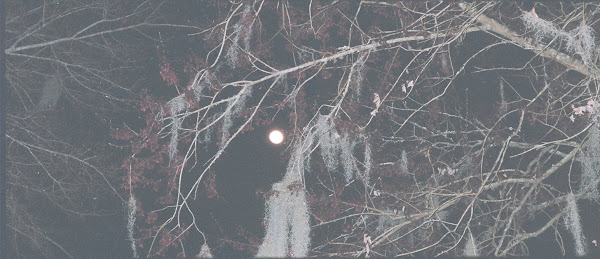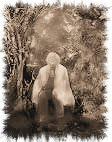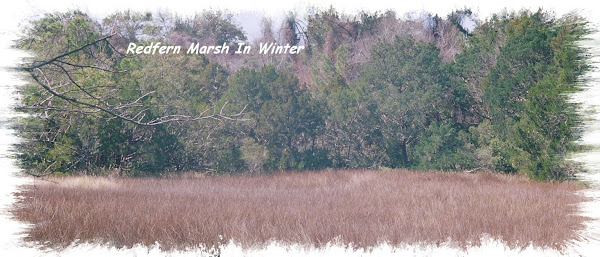Chapter XVII.
They used to bring pipes of canary and madeira wine to New Zealand, the vast-sailed ships winging out day after day on the favouring winds from England: and there was sprigged satin for gentlemen's waistcoats, advertised a great deal more conspicuously than the materials requisite for crinolines and for the delicious pantalette.…Shipping news was given the most prominent place in those early newspapers. What is it, the delicate frost-etching of the years, the poignancy of memories, that makes their files so much more intriguing than the stuff we write to-day? There is no modern illumination so vivid as the slender blue and gold branching of the candle-flames: there is no other scent in all the world of flowers so heart-touching as the chrysanthemum's, and that is the flower of autumn, already half lost to yesterday. There is nothing so much alive as a ghost.…
Ah, but they were gallants, those men of the earlies, with their great gold fob-watches and their sprigged waistcoats! Did not one of them, good Wellingtonian and true, issue a newspaper challenge to his contumacious enemy to come forth and “have his nose pulled”? And the New Zealand Herald had an editor, a lanky rebellious fellow, who was always waiting to fight duels. It would take all “Holy Joe's” piety, maybe a little more, to lay that swash-buckling spectre.
Methods with newspapers of the earlies were terse and direct. The now extinct Southern Cross office mortally offended some British sailor-lads. page 220 Very well: ropes were hitched round the not very imposing building by the irate tars, and an ultimatum issued. Either there was instant retraction of the insult, or, with a yo-heave-ho, the navy would simply pull the office to the ground.
The Southern Cross retracted.
Christchurch (I have seen it portrayed in old map-drawings still kept in the City Council offices), was a flat, depressing spectacle, its beloved Avon an ignoble little stream wandering through raupo bushes. They hadn't yet made it the lovely city of trees that it is to-day, but there at least, a vision of English greenwood and English graciousness had come over the wide seas, and great spaces were planted out with oaks and poplars that may grow tall as Sherwood's yet.
Dunedin was Scottish almost to a man. The Gabriel's Gully rush, the magic whisper of “Gold,” filled its veins with life. A hotel shoe-black stayed off the golden trail, worked like a slave, bought land at auction sales. Presently, to the vast amazement of everyone, his lands were of such importance that he could command rentals a feudal baron would not have despised.
Old John Sidey, the former “boots,” built “Corstorphine,” grey stone on grey stone. English customs were rigorously observed. Sunday meant an enormous plum duff, carried in gleaming with brandy-flames. They asked him, one day, if he would contribute something to a Presbyterian church. He shook his head.
“Nay,” he said decisively, “but,” with a bleak smile, “I'll build it for ye.” And build it he did, a goodly blue stone church at Musselburgh. All his life long he prospered and gave. His son was the late Sir T. K. Sidey of Daylight Saving fame.
Government House in Auckland (was not Wellington, first christened Britannia, but the “contemptible little fishing village on the Cook Straits?”) page 221 was made of great kauri logs dragged from the depths of the forest by big, burly, bony bullock-teams. The logs were pit-sawn on the site where the green lawns, with their flaming ribbons of salvias, now spread cool underfoot. The first man to build a house on this site was the French adventurer, Baron de Thierry, “the man who would be King.” The Governor's residence was run up, a three-storeyed building of queer rambling passages and unexpected stairs.
An old saying is that a house must have a wed ding, a death and a birth before it is a home. None of these events has ever taken place at Government House in Auckland, but there were, by way of recompense, two burglaries and two fires, both on a very small scale. One of the fires took place whilst Sir Ian Hamilton was staying there, just before the war. Parts of the wooden roofing are still charred. The Ministry of Internal Affairs looks after Govern ment House, does it very badly indeed. The kitchen has ragged oil-cloth, the curtains would be consid ered old-fashioned in a suburban bungalow.
The orchestras at Government House functions of to-day leave nothing to be desired: but on one historic occasion, in the earlies, the hostess presided at the piano, with the aid of a wheezy 'cello as her only accompaniment. Still, eyes were bright, military uniforms were dazzling, moustaches were magnifi cent, and crinolines spread like the delicate whorls of flowers.
Newspaper criticisms of early Governors was singularly free and easy. Sir Hercules Robinson, a rather dyspeptic-looking arrival, was far from amiable on the occasion of his visit to a Waikato Maori pa. So little did his manner appeal to a “princess,” one Rahia, that she had to be forcibly restrained from blacking His Excellency's eye. The New Zealand Observer, which started in the colony's youngest days and was somewhat outspoken, was page 222 all for Princess Rahia. In a leader, it refers indig nantly to “the maniacal behaviour of the Governor.” The Observer had a lady editor who wrote up social and fashionable events as I should love to write them: she described the costume of one lady in detail, concluding, with disarming candour, by stating that “it was not at all becoming to her.” Bright young things, still brighter old things, if you but knew how often just such comment seethes in the breast of the downtrodden scribes who take down the details of your array, and have to stand the racket if there's a frill out of place!
Parliament met in Auckland May 24th, 1854. By a majority of ten, it was decided to open session with prayers — and the need for this has never become less at any succeeding date. After seven weeks' bickering, the Governor prorogued his Par liament, Edward Gibbon Wakefield was described by Samuel Revans, of the Wairarapa, as a felon, and championed by Mr. Mackay, of Nelson, who came off much the worse in a Rafferty rules bout of fisticuffs.
The Governor called on an Auckland baker to form a new Ministry. The said gentleman popped upstairs to don a clean shirt before calling on His Excellency, thereby providing his cabinet with the splendid title, “The Clean-Shirt Ministry.”
Sir William Fox and Henry Sewell each reigned for thirteen days as Prime Minister in Auckland. They at least must have found something in the legend of unlucky thirteens.
But there was an unforgettable gusto of living in Edward Gibbon Wakefield's make-up. He sleeps now in the little closed Boulton Street cemetery, his stone tombstone cracked right across by wind and weather. Here too towers an appalling galvanised iron Liberty, over Dick Seddon's grave.
But the little dreaming graves, lost under wild rose and seeded grasses, are sweet with memories. One of them has on its marble slab two tiny coffins, page 223 and the simple words, “Twins taken.” On another, Hannah, a lady of hopeful tendencies, appears as having been “translated.” John, her husband, merely and bluntly died.
Nobody visits the Mission Bay grave of little Ruth Dommett, child-daughter of the poet who was Browning's friend. It is in an Auckland churchyard, out by the old stone building at Mission Bay, used now as a museum. Once the grey waters lapping so quietly there saw the canoes slide in, laden with laughing Maoris and huge golden-ripe peaches from the North. “Men buy not such in any town.…” And once, too, those canoes came in menace. A prancing display of military reserves scared them off.
Comic incidents in high life by no means ceased with the death of Wakefield and the passing of Robinson. Lord Plunket's offspring were the small sinners who smeared jam on Government House doorknobs on one very stately occasion, so that guests were properly overwhelmed with mingled confusion and rage. Lord Plunket preserved the sort of Oxford accent beloved of comic papers and Bolshevists. “Blo,” otherwise the Observer's veteran cartoonist, W. H. Blomfield, made a practice of portraying His Ex. with the vice-regal monocle firmly affixed in his eye. On one occasion, a message summoned “Blo” to Government House. Expecting anything from a knighthood upwards, he went.
“Are you the fellah,” asked Lord Plunket, severely, “who does all those beastly cartoons of me?”
His heart in his boots, “Blo” admitted that such was the case.
“Then allow me to tell you,” cried the victim, with no small degree of warmth, “that I wear my monocle in my right eye, not in my left.” Collapse of “Blo.”
Lork Plunket was the author of the famous “Pass page 224 the Watah, Percy.” His Excellency travelled in some state. On one train journey, he fared in the public dining-room at Dannevirke. An enormous decanter of whisky was produced from the aide's effects. Greatly daring, a thirsty neighbour murmured, “Would your Excellency mind passing along the decanter?” “Certainly,” cried Plunket, beaming, “Percy, pass the watah to this gentleman.”
It has been unofficially recorded that Lord Jellicoe was one of the few to use the com munication cord on the Main Trunk, other than in cases of murder or sudden calamity. His Excellency was leaning out of the train window, when to his horror his false teeth fell out. Acting on a loyal impulse, his aide sprang to the communication cord, brought the train to a snorting standstill. His Excellency's feelings can be better imagined than described. The Jellicoes introduced the startling modern innovation of twin beds. The Fergussons hurriedly restored the dignified four-poster, and there has been no subsequent departure from this custom.
What the streets of New Zealand towns must have been like in the wild old days—especially in Wellington, where the principal recreation ground was raised to its present level by an obliging earth quake, and several of the modern thoroughfares were at one time under the sea—is hard to imagine. But in Auckland, one high official got so entirely weary of the seas of mud that he secured empty beer-barrels from a popular hotel, had them cut in halves and sunken like bridges from Fort Street to Wellesley Street. Imagine the stiff-corseted, bonneted little ladies of those picturesque days picking their way along a main street resting on so intemperate a foundation! But they were gallant, these “lost ladies of old years.” Many a shining life gave light and laughter in a strange dark land, while still the sailing-ships were few and far between, and whole families were wiped out, child after child, by page 225 the scourges of scarlet fever and diphtheria.
When the candles went out.....it was long enough ago. The streets in the New Zealand towns used to be lighted by oil-lamp, and there was always a scurry of lamplighters as dusk settled down. Each hotel (and whatever the country lacked, it was not an adequate supply of hotels) had its own big lamp, and the oil blazed till morning—no "early closing plague" for New Zealanders then. When the gas was first turned on, wild rumours as to its explosive qualities flew about among the citizenry, and people of importance dashed from Queen Street to Freeman's Bay to discover if in truth the new-fangled gas main had been blown to smithereens. Government House, in each centre, was lighted by the flare of gas-chandeliers ..... under which, according to the papers of those days, gowns looked "most effective."
Ladies went driving in little basket-weave contraptions, their ponies jingling bright harness. The sinister part of Auckland was the red and white houses of Upper Queen Street, where the ladies were "not thus, but far otherwise." They had their bright moments too. The son of one of the wealthiest town identities (whose daughter drowned herself in a well after the marriage which her father had arranged by making it known that she was available as a bride for any officer who could put down a given sum), used to drive his spanking equipage here, flinging so sovereigns from his silk hat to the ever-ready camp-followers.
In Queen's Hotel, Upper Queen Street, died an old rousabout whose cherished possessions were a signet ring bearing one of the noblest crests in England, and a pair of skates engraved with the reminder that the Prince of Wales (afterwards King Edward VII.) had skated on the family ponds years ago. "King Cole" mortgaged away the future his remittances promised him before he had long been in New Zealand.
His tragic souvenirs were akin to more page 226 recent. In the past two years, I have seen for sale in Queen Street shop-windows a bejewelled snuff-box presented to its titled owner by the murdered Czar of Russia, a cigarette box whose donor was that ex-Kaiser of Germany. One would think that these memories of a dying epoch would be beyond price, but the wealthy squatter of to-day is less ready to go without his luxury than was the hotel-hanger-on who never parted with the sacred tokens of his home.
Quoting Shakespeare, quaffing champagne, "Big Donald" of the gumfields used to "treat" royally when he drifted into town. Disaster came about when the splendid-looking, leonine-bearded Scot heard a fellow digger's strictures on the probable circumstances of his birth. Quite calmly, he brained the slanderer with his shovel. He never came to trial, being spirited out of the country by some means not yet explained. The story was that he was of Royal connection.
"The Rollicking Rams" were the most enterprising, if not quite the most respectable, men's club in Auckland of the earlies. One of their exploits was to roll an enormous kauri tree butcher block down Shortland Street, causing a mad stampede of "cabbies," and wrecking a lawyer's office, in which the block finally found its abiding place.
The first New Zealand lifts were horse-drawn, and little horse 'buses conveyed citizens to the dim beginnings of Suburbia. Penny-farthing bicycles, with their great 54-inch wheels, became popular in the 'nineties, and the founder of Auckland's first cycling club was Mr. Clem Bartley, for many years associated with the Auckland Savings Bank. He was in charge at the time of the famous bank rush at Newton, when the situation was only saved by the Bank of New Zealand, which sent over £5,000 in gold. The sight of the gleaming pile of sovereigns, poured on the counter, somewhat soothed the mob's savage breast, and before the end of that exciting page 227 day depositors were shamefacedly paying in again the savings they had withdrawn.
By the way, the first Savings Bank used to open weekly, and for a period of two hours. But New Zealand wasn't exactly an important place in those days. I remember reading in the Britannia Gazette —published in a raupo hut on the banks of the Hutt River—that among our principal industries might be accounted “stuffed birds and dried Maori heads.”
Year 1860 brought the bright uniforms of the soldiery in their full tide and glory, into the city streets. The Maoris were up and doing . . In one old Auckland house, whose grounds cover the site of the ancient barracks, glistens a great flowering damson tree, planted by the soldier-lads whose hour of camaraderie and pluck is so long forgotten. The Maori wars, the tragedy of a fine nation's passing into subject state, are full of incidents that not Cetewayo's warriors could surpass for valour. Rewi's great cry, “Friends, we will fight against you for ever, for ever,” rings eternally through the halls of immortality. And there was a humorous courtesy, too. In the King Country, a pakeha newspaper set itself against the menacing King movement. The office was wrecked, the machines broken up, the type scattered… . but the newspaper staff were most hospitably sheltered in no other place than the office of their deadly rival, the Maori paper whose name was “War Bird.”
Curiously enough, when one considers how lightly courtesy is usually entreated in the present century, there has been a consistent attempt to deal with that old Maori chivalry as it deserved. In the last decade, a film of Te Kooti's life was made by a New Zealand company. Te Kooti, terrible leader of the Hau-Haus, was worshipped as a god by one small section of the Maori people—the Ringatus, whose name literally means “lifted hands,” signifying the phosphorescent palm with which the wily Te Kooti used page 228 to impress his followers. The New Zealand Govern ment paid the expenses of the ten lone survivors of the Ringatus to Wellington, that they might see the film before it was released, and raise any notable point of objection. This was perhaps a lavishness we could not afford, but as a gesture it is certainly more in the grand manner than one would expect.
Men fought, endured, dreamed.… . Charles Browne, firm friend of John Keats and Leigh Hunt, lived his last years in New Zealand, died here, his New Plymouth grave unmarked. But precious relics of the English poet were preserved, including a sketch of Keats from the pencil of Browne himself. Browne is mentioned again and again in Keats' collected letters, which have all the wit and colour of a young mind still unclouded by the sorrows of his later life. In Auckland lives one of Browne's descendants, who can remember in her childhood the rough bearded face of one of Leigh Hunt's sons, demanding toll of a kiss. The Hunt family were rovers, and one of them took to a seafaring life, spending much of his time in New Zealand waters.
There is an old garden at Keri-Keri. Its pride is an English may-tree, laden with delicate lace-white blossoms every spring. The stone building behind which the garden's world of green grass and soft colours lies hidden away is a store now: but it used to be Bishop Selwyn's headquarters, and upstairs, in an attic hung with great grey-blue cob webs, the fighting parson of the old days would sit, grateful for the quietude of a building which he naively described as “so uncolonial.” Here was his little library, and here he prayed for hours of tranquil meditation, “that there may be some abundance in me, from which I may give to others.” Far away in England he died, a Maori prayer on his lips. Here is the faded scrawl of thanksgiving written by the missionary who saw the first plough furrow New Zealand earth. The stone walls had page 229 need to be fortress-thick, stone piled on stone by Maori hands, the small windows barred. Within spear-shot rose of old the defiant pride and vengeance of Hone Heke's pa—and day by day, English girls in the garden of the may-tree could see Maori canoes come back from their war-cruising, weighed down with the captives who were slaughtered for cannibal feasting. A few hours' journey down the clear jade and crystal of the Bay of Islands, Russell, entranced now in a listless aftermath of stormy days, was reckoned the Hell of the Pacific…… a place where every savagery was flaunted unashamed. Its old gabled houses are quiet enough to-day, the grey and rose plumes of the sunset lie upon waters that seem ringed in by memories. Ghost-sails shine here at sunset, as one watches the rose fade from the little lapping waves.
The wings of a shapely old brick windmill turn against the Auckland sky. There was a rat-pit here, where youngsters now dead or ancient and respect able, used to lie in the fern on their stomachs, watching homeric battles. Inside the mill, old Partington, in his swallow-tailed coat, grimly watched the bullets melted and moulded for use on any dusky hides whose owners might venture against his city.
Old years, goodbye.… . We had changed enough when the war was set behind us. Four years of a peace-time struggle, a bitterness that has chosen as its battlefield the human heart itself, divided the beliefs and loyalties of every nation, have done a century's work in corroding old ramparts.
Young anarchy, even the post-war brand, is subdued: though twice Auckland university students have come perilously near to the murder of a Governor-General, for their mighty swipes on the cricket pitch have twice broken Lord Bledisloe's bathroom window as His Excellency lay a-musing on the state of agriculture.
page 230
And they of the modern newspaper world are inordinately respectable. The leaders, by morn, by dewy eve, are exactly what might be expected. One longs for some ghostly echo of the controversy between old Bob Pivitt and the late lamented “Holy Joe” Wilson, who had a commanding position in the New Zealand Herald office, took church services, proceeded in his stylish carriage every morning from his Remuera abode to the office precincts.
“Well, Bob, still trusting in the Lord!” was his unvarying morning greeting to the old hand who stabled his horses and stoked up the Herald furnaces.
“Aye, still trusting,” was Bob's meek reply— until salary cuts became the issue of the hour.
“Well, Bob, it's a few shillings off your salary, but a golden crown and glory for you up above,” was Holy Joe's comforting way of breaking the glad news.
“Damn your golden crowns up above,” remarked Bob, frank for once, “I want my silver crowns down below.” Perhaps a Bob Pivitt would be a useful addition to the Journalists' Union of to-day.
And perhaps twenty years, yellowing the files in the newspaper “morgues,” will show to writers who are children to-day flashes of humour, wit that had courage and self-reliance, glimpses of the generous spirit. “Les nièges d'antan” will have fallen deep by then. There was treasure enough sown in the fields of the years that are ended. May somebody who spares the time to look back at those who have known our disenchanted years say as much of the little we have written.
Finis
Dear Readers, please do not assume that you understand anything you read on this blog.(;-)


.jpg)

.jpg)
.jpg)


